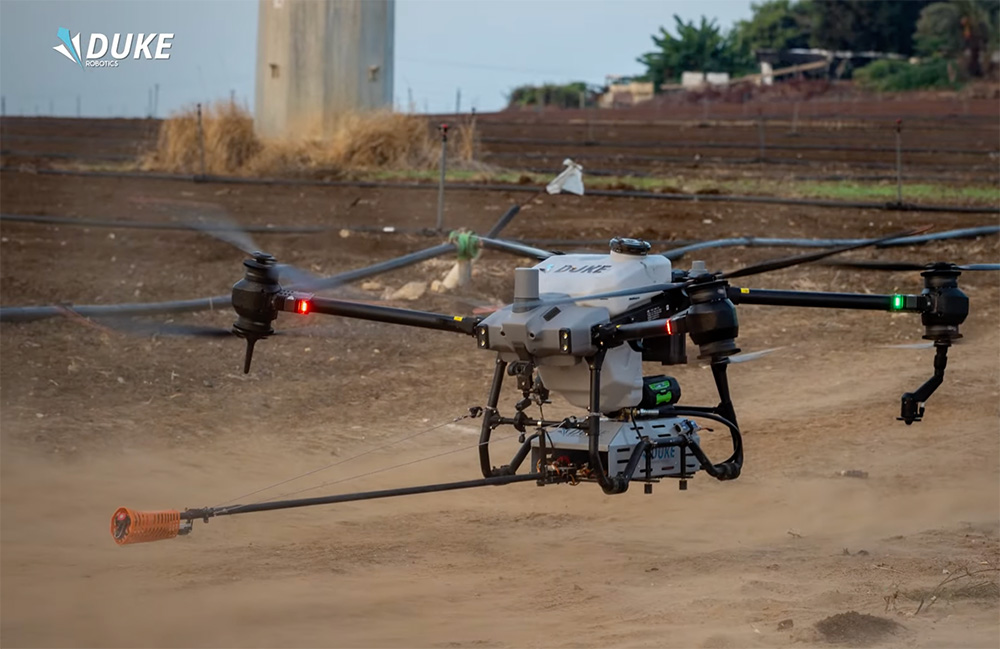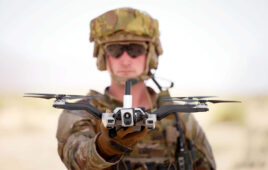|
Listen to this article
|

The Insulator Maintenance Solution uses remote operation technology to reach locations known for their difficult access. | Source: Duke Robotics
Duke Robotics Corp. this week announced initial revenue generation from its agreement with the Israel Electric Corp. Per the agreement, the company provides high-voltage insular washing services with its IC Drone.
The IEC agreement reflects Duke’s transition from development to active service and revenue generation within the civilian sector, it said. The the robotics and drone company said the IEC Agreement establishes it as a provider of aerial cleaning systems designed to enhance the safety, efficiency, and sustainability of utility maintenance operations.
IEC has committed to a minimum utilization of services, with a guaranteed payment in the low seven figures (in NIS, or Israeli new shekels) within the first year of the agreement. With the IC Drone fully operational for cleaning electric utility insulators, Duke now aims to expand its offering to other utility providers globally.
“We are excited to launch our IC Drone services with the IEC,” stated Yossef Balucka, CEO of Duke Robotics. “It also marks the beginning of revenue generation for Duke Robotics, as we reported in our quarterly financial statements for the third quarter ending Sept. 30, 2024.”
“We believe that this deployment is a testament to the effectiveness and value of our drone-enabled solutions,” he added. “We look forward to bringing these benefits to utility companies worldwide as we continue to grow our service offerings.”
More about Duke Robotics’ technology
Duke Robotics offers its drone technology for both civilian and military applications. For civilian use, the company said its drones can be remotely operated, user-friendly, and portable. They can make dangerous jobs safer, quicker, and more efficient.
In addition, it said its drones can provide access to difficult-to-reach areas for tasks such as cleaning. Duke Robotics said the IEC agreement demonstrates its devotion to innovative drone applications in the civilian sector and to advancing sustainability in utility maintenance alongside its existing military offering.
Duke’s military offering is called TIKAD, a platform that enables remote, real-time, and accurate firing of lightweight firearms via an uncrewed aerial vehicle (UAV). The company said it designed TIKAD to serve the growing demand for combat technologies that provide stand-off capabilities to minimize military casualties.
Formerly known as UAS Drone Corp, Duke Robotics said it is focused on bringing advanced stabilization and autonomous systems to both military and civilian sectors. The IC Drone is based on the company’s intellectual property and know-how, integrating algorithms, autonomous systems, and robotic technologies used in mission-critical applications.







Tell Us What You Think!